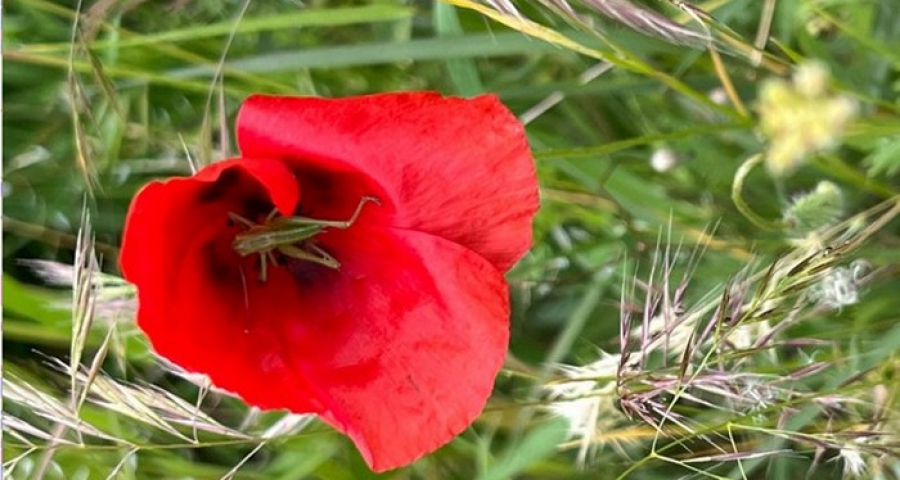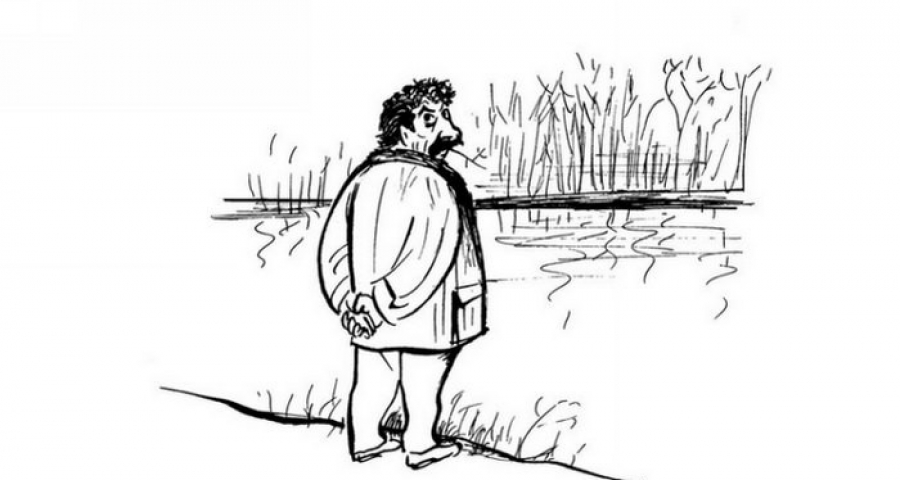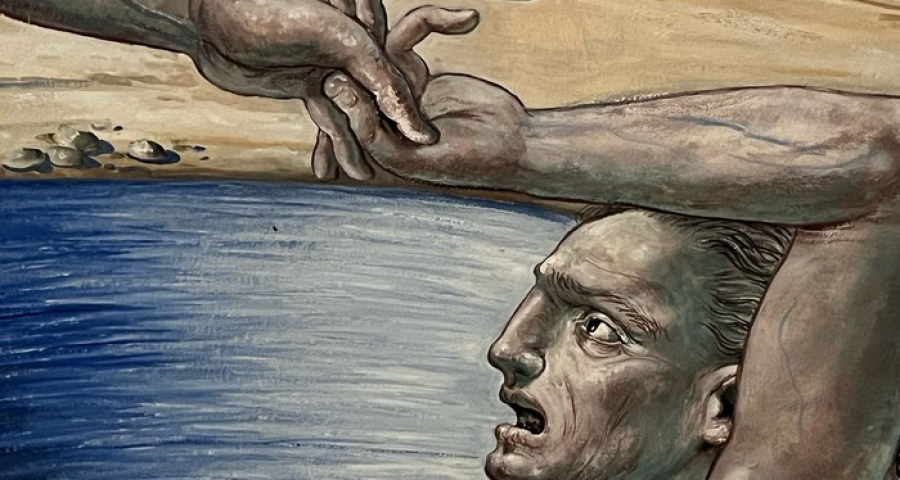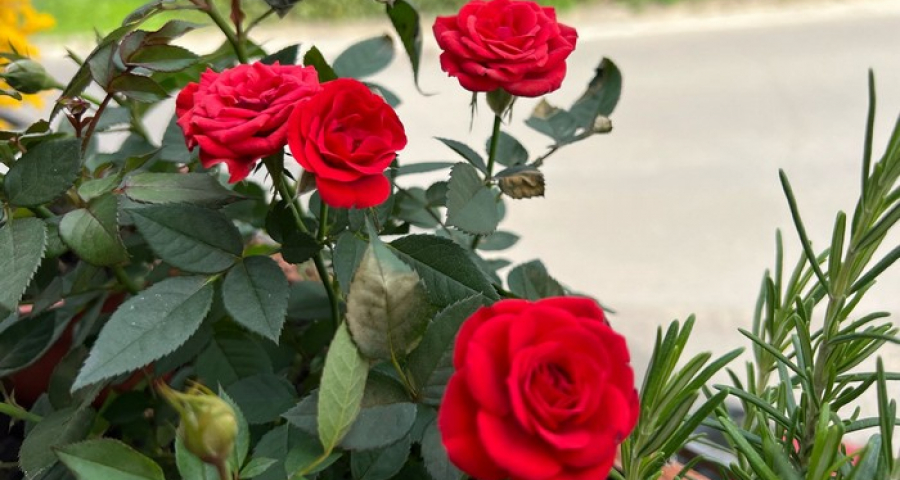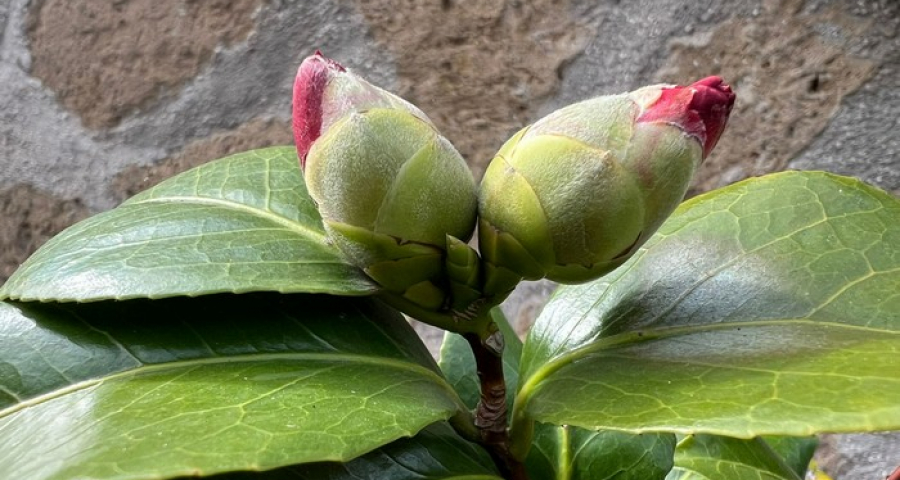In the belly of the Word/11 - The book of Jonah ends with a question from God that remains open
by Luigino Bruni
published in Avvenire on 28/04/2024
«In the whole psychology of the "Gospels" the concepts of guilt and punishment are lacking, and so is that of reward. "Sin", which means anything that puts a distance between God and man, is abolished—this is precisely the "glad tidings"."
Friedrich Nietzsche, The Antichrist, 33
The Bible is full of questions from men and women addressed to God and to other men and women. Sometimes there are also questions from God. The book of Jonah is the only biblical book that ends with a question and with a question from God. This final question is very beautiful and extremely important, not only (or not so much) for its content but because it is a question from God, open and unanswered, which leaves the conversation between God and Jonah and between God and us open. Questions are almost always more important than answers (as teachers know very well), because they are tools of discovery, unexplored places of the not-yet, tastes of the Promised Land. Questions are the dawn of tomorrow's conversations, they are the beginning of journeys, the first words of the poems as yet unwritten. For this reason, the questions of women and men, especially those of children and young people, are a legacy of humanity, to be protected like the Sistine Chapel and the Alhambra. The Bible loves our questions to God very much, but it also likes God's questions, because they push out the boundaries of the human spirit and our understanding of mystery.
Whenever an author has put a question addressed to us ‘on the lips of YHWH ’, he has imagined himself in the role of God’s prompter, hidden under the dome in the ‘pit’ of the stage of the universe. And if God then addresses us with questions-without-answers, the Bible is not just a code of ethics or a manual for confessors. It is rather the free dialogue between Elohim and men and women, so free that it continues even when the book ends. In the book of Jonah, God dialogues with the prophet. He never utters words of condemnation for his disobedience or his anger. Instead of reproaches, He asks him questions without expecting to get an answer. Here too lies the meekness of the biblical God, even in this he is our friend - how much violence lies behind the questions that press us for an answer: friends are those who ask us the most important questions and who then know how to obediently accept even our silence.
“Then the Lord said, “You are concerned about the bush, for which you did not labour and which you did not grow; it came into being in a night and perished in a night. And should I not be concerned about Nineveh, that great city, in which there are more than a hundred and twenty thousand persons who do not know their right hand from their left and also many animals? (Jonah 4:10-11).
This ending with an open question closely resembles, as Jerome already noted in his Commentary on Jonah (p. 98), that of the parable of the Prodigal Son, which ends with the question addressed by the Father to the elder brother: “But we had to celebrate and rejoice, because this brother of yours was dead and has come to life; he was lost and has been found". (Lk 15:32). Two passages and two teachings on the mercy-hesed-agape of the biblical God. Even Nineveh, a pagan city, is included in the merciful horizon of the biblical God. Even its inhabitants who cannot distinguish between good and evil must be saved – we should not deny the possibility that in that mysterious verse about the children who do not know ‘right from wrong’ there is a reference to the children of Nineveh (Deut. 1:39): the biblical God loves children very much and saves them from destruction and wars. Not only the first son but also the younger one who has made mistakes and confused evil with good, remains a son and therefore deserves the same love from the Father. This interpretation which ties together in a single thread of agapic gold the Old and New Testaments, certainly captures much of the original intention of the author of the book of Jonah, who wanted to give his people a message of universal mercy and thus correct the nationalistic tendencies and temptations that have always plagued them. For if there is a true God, and the Bible says there is, then this God must be Father to all, to Jerusalem and Nineveh and if he does not take care of all the men, women, children, and creatures of the earth, even the biblical God is just an idol - and the sun goes out.
The reference to the animals of Nineveh is important. Biblical humanism has been, and is, accused of its extreme anthropocentrism, for having put Adam at the centre of creation with an explicit command: "…fill the earth and subdue it and have dominion over the fish of the sea and over the birds of the air and over every living thing that moves upon the earth.” (Genesis 1:28). And indeed the earth has been subdued, along with the other creatures, to the point of taking their breath away with capitalism. But in the Bible there is also God's pity for animals, which are mentioned together with human beings to tell us that their lives matter too - only plants are missing, as in Noah's ark.
The space that the author wanted to free up for us with that open question can become an invitation to write the continuation of that interrupted dialogue between God and Jonah. Open endings are also this possibility of us growing with the Bible and the Bible with us. We can ask ourselves: did the Good Samaritan return to settle the bill with the innkeeper? And in the meantime had he taken care of the half-dead man? Did the Samaritan find him still alive? We don't know. But if we take that ‘go and do likewise’ (Lk 10:37) seriously, we must try to write these unwritten final words them ourselves.
And we can also ask ourselves: did the elder son take part in the banquet for the return of his prodigal brother? We don't know, but, we can try to complete the unfinished parable: “After these words, the brother went away, very sad. He went into town with some friends while the celebrations began in his father's house ". A possible and frequent ending, we see it every day in our own homes. But we can also write a different ending: "After the words of the father, the brothers went to the banquet together: the eldest son stood at the centre of the table of the guests, served the portions of the calf and gave the speech for the return of his brother. The two embraced, kissed crying and then sang the psalm together: "How very good and pleasant it is when kindred live together in unity!” (Ps 133) Perhaps these private, very personal words that each of us can add to the endless stories of the Bible are just as important as the other words of Scripture. Because this is our part of the story, these are the lines that the author left empty so that we could fill them.
But let’s return to Jonah, for one last look before thanking him and bidding him farewell.
We don't know what Jonah thought after that final question from God. The author wasn’t interested. We, on the other hand, are interested, it must interest us. Because we are Jonah and at least in the end we must carry out the ethical and empathic exercise of entering the heart of that ancient prophet and accompanying him beyond the last words of his book. To do this, we must assume that Jonah was a true prophet, not a false prophet. We knew it, but we discovered it from the first to the last line of his book. And so it is not difficult to imagine the possible answers that Jonah could have given to God, at least in his heart.
“I don't understand you anymore Lord, YHWH. You trained me from an early age to be your prophet. I thought I understood your heart and the meaning of your words. And instead my story up to the fleeting shade of the castor plant (qiqajon) was just a sequence of illusions and disappointments. But I thank you, because today I finally understood that what I thought was my vocation. To be your prophet, was only a self-deception, a youthful dream. All this escape and effort from Tarshish to Nineveh made me realize that I have to change everything and start a new life. The final disappointment was a blessing. I bid farewell to the prophetic illusion forever and I begin a new life, different from the one I had in mind but finally true". An outcome that we see in many Jonahs, in those honest people who sincerely follow a calling, until one day a decisive painful experience convinces them that the vocation of youth was only an illusion. And they leave. To save their soul they abandon their first vocation, to become adults they kill the youthful voice now experienced as deception. The “Qiqajon” marks the beginning of a new life, sometimes even a good beginning.
But for Jonah it is also possible to imagine another ending: “I have followed you, YHWH, as best as I could, but always with sincerity. This long experience began with my escape to Tarshish, continued in the belly of the fish-mother, then continued along the streets of Nineveh and culminated in the booth that did not really provide shelter from the sun. I finally understood the meaning of my youthful calling. I learned another face of yours O God, different from that of my youth: I could not have had a better journey. I understood that your face of yesterday was not illusion or deceit, it was only your first love for me: but to understand it I had to reach the castor plant". Jonah became an adult while remaining a prophet. The young boy, the apprentice prophet became an adult prophet (at the beginning of this commentary we imagined Jonah as a young man). And so he understood the most important truth of every adult vocation: the God of youth must die in order to rise again, but only if he truly dies can he truly rise again. And we understand the ‘sign of Jonah’ even better: Jonah's journey was the same journey that led another prophet from Golgotha to the empty Sepulchre, the two signs are the same sign.
The book of Jonah can then also be the story of the process that introduces a vocation to adult life, an ethical lesson on how a young prophet can become an adult while saving his vocation, if and when one day he understands that the God of youth did not die: his first idea of God has died, so that in that space a new and truer one could be born, which will then die again to rise again many times, until the end.
And so ends this commentary on the book of Jonah, a book I love passionately. It ends with words that are not necessary, but perhaps useful to continue the dialogue with Jonah and with his many brothers and sisters in the Bible.
I would like to say a word of thanks to the Director, Marco Girardo and to Andrea Lavazza, who encouraged me to resume my beloved biblical commentaries in Avvenire, which are a kind of literary genre, as a reader wrote to me. Thanks above all to you readers, companions who have become indispensable. Thank you and goodbye.






